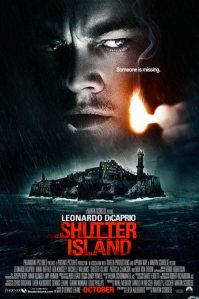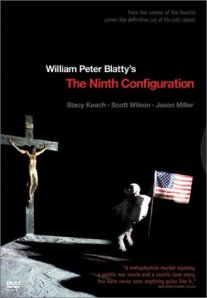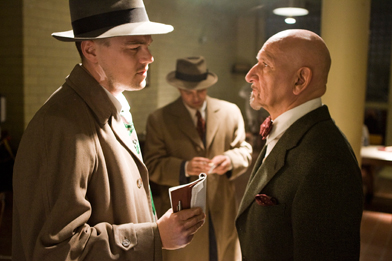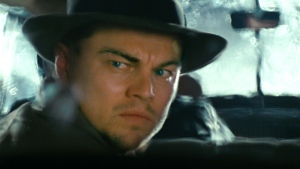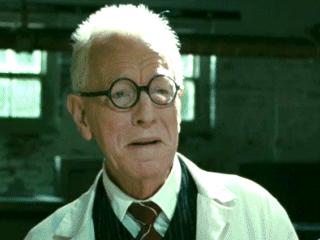“Someone is missing.”
Slogans for movie titles often reveal a lot.
After hearing a bit about the movie from my son and a couple of his friends who had seen it earlier in the week, my wife and I set out to see Martin Scorsese‘s Shutter Island yesterday. Without revealing any of the intrinsic plot details, the boys had provided me with a tantalizing synopsis of the movie. What they didn’t know was that what they provided me with reminded me of William Peter Blatty’s 1980 movie, The Ninth Configuration.
By the way, that could be construed as a HUGE plot spoiler for those of you familiar with that movie. However, I’m not going to talk about that one anymore, suffice it to say, if you haven’t seen it, you should – just as you should see this one.
Shutter Island is a film-noir, psychological thriller set in the 1950’s with the bulk of the plot taking place in an inescapable, remote island facility meant to house the most dangerous and psychologically unbalanced crimin . . . er, uh, patients (as Doctor Cawley, played by Ben Kingsley, calls them).
Hmm, a remote island facility with no means of escape for the mentally deranged, you say? Not only does that set the creep-out factor up a notch – it kind of dials up the cliché knob a bit as well, but I don’t have a problem with that.
What we know going in is that two U.S. Marshals (Leonardo DiCaprio as Edward “Teddy” Daniels and Mark Ruffalo as Chuck Aule) are on route to the institution to investigate the disappearance of a woman who was accused of murdering her three children. Evidently, we surmise, the woman, Rachel Solando, played by Emily Mortimer, is so disturbed and traumatized by her actions that she has repressed any memory of them, and subsequently receded into her own imagination by fabricating a delusional reality where her life isn’t really what it seems. This is her coping mechanism for dealing with the gravity of her horrific acts.
It would seem that Teddy has also endured a fair bit of horror himself having been a veteran of World War two and been one of the first to arrive at the infamous Nazi concentration camp in Dachau. Upon his arrival at the camp, he encounters the German commanding officer who had tried to take his own life, but failed. The C.O. lies in pool of his own blood with the left side of his face ripped open from the path of what was no doubt a bullet. In another particularly gruesome scene, Teddy encounters the bodies of the dead literally frozen in the act of pouring out of a train car.
Chuck is Teddy’s new partner. He’s from Portland. No, make that Seattle. He’s from Seattle. Teddy doesn’t know much about him. (Hint: pay attention to the little things in this movie.)
As the two marshals arrive they’re greeted by armed guards, and told that according to protocol that they must hand over their pistols. They reluctantly agree. Daniels pulls his pistol out easily, while Aule struggles somewhat to remove his from his waistband. Their given the basic overview of the grounds by one of the guards and taken to meet Doctor Cawley. Immediately upon beginning the investigation, they discover that the staff is reluctant to cooperate. The mystery and the tension begin to mount.
As movie unfolds themes of identity and subjective reality are manipulated. We’re taken through a variety of plausible scenarios that work in conjunction with dreams that Daniel’s begins to have of his murdered wife and his experiences in Dachau. The presence of the German Doctor Naehring, played by Max von Sydow, only heightens Daniel’s incipient Nazi paranoia and suspicion that the prison is being used for dreadful purposes similar to what the Nazi’s did in World War II. He also begins to suspect experiments in mind control through the use of pharmaceuticals.
Save for a brief scene in a cave with Dr. Rachel Soldano (this time played by Patricia Clarkson), I loved the acting in this movie. The aforementioned scene is the only exception because although it contains some provocative lines that foreshadow a certain character’s forthcoming denial of reality, they’re delivered in a strange way that seems out of synch with all of the other actors. Leonardo DiCaprio is excellent as Teddy, and I get a kick out of his affected Bostonian accent. It’s real thick and makes me think of an old-timey actor playing from the era this movie was set in. Ben Kingsley is methodical in his depiction of the head doctor, and Mark Ruffalo is almost a scene stealer as Teddy’s partner, Chuck. Pay attention to Max von Sydow’s creepy depiction of Naehring as he analyses the two marshals when they come to the main house for drinks. He describes them as men of violence, not to be confused with violent men. It’s pivotal in helping to develop the Nazi theme.
The soundtrack is of particular interest – not just because it contains no original music, but because it’s played at such loud volumes. All of the music was compiled by Scorsese’s long-time collaborator, and friend, Robbie Robertson formerly of the band, The Band. It contains a diverse collection of eclectic pieces ranging from John Cage and György Sándor Ligeti to Gustav Mahler and Brian Eno. At times, the sheer intensity of the volume of the music as it played reminded of Scorsese’s remake of Cape Fear.
At times there are parts of the movie that seem to drag a bit – the denouement sticks out as being particularly guilty of that, but in retrospect most of the more lengthy scenes aren’t gratuitous, they’re planting seeds. They help us to understand that someone is missing indeed, but it may not be who we originally suspected.
With that in mind, I suspect Shutter Island will be even better the second time around.
